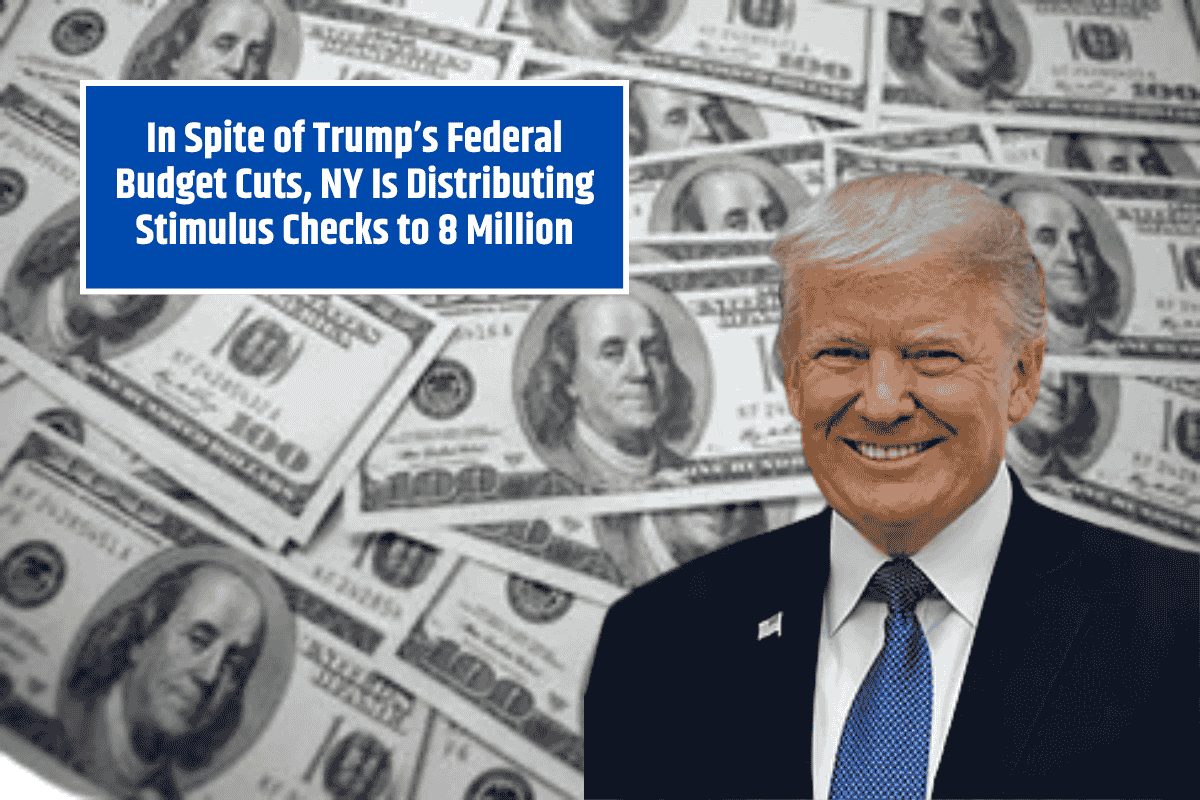In a move that contrasts with federal austerity measures, New York State has enacted a budget for fiscal year 2025-26 that includes direct inflation relief payments for residents.
Governor Kathy Hochul’s administration is rolling out this initiative, which will see approximately eight million residents receive one-time payments totaling $2 billion in the fall, directly injecting funds back into the state’s economy.
The Origin of the Inflation Relief Payments
Unlike traditional funding methods that rely on new debt, this initiative is made possible by a surplus generated from inflation-driven state sales tax revenue. As inflation pushed up the cost of goods and services, the state’s tax collections exceeded expectations, allowing New York to return some of this excess to residents.
Governor Hochul has emphasized that the funds collected were “the people’s money,” and she believes it’s important to give it back to the working families who generated the surplus.
Eligibility for Inflation Relief Stimulus Checks
The relief program is designed to be simple and accessible:
Automatic Eligibility: If you’ve already filed your 2023 state income taxes (Form IT-201) and meet the income requirements, you’re eligible for the payment. No additional application is needed.
Payment Tiers:
- $400 for married couples filing jointly with an income of $150,000 or less.
- $200 for single filers, married individuals filing separately, or heads of household with an income of $75,000 or less.
Payment Distribution: The New York State Department of Taxation and Finance will begin mailing physical checks in late September 2025, continuing for several weeks. Direct deposit will not be available for these checks, so residents need to ensure their address is updated with the tax department to avoid delays.
A Bold Move Amid Federal Budget Cuts
This move to return a significant portion of the surplus to taxpayers comes at a time when the federal government is tightening its purse strings. The recent federal budget cuts—including reductions in social programs—have created immediate funding shortfalls for New York, with a projected $3 billion gap for the coming year.
Despite these challenges, Governor Hochul has remained committed to issuing the relief checks, framing them as a unique opportunity to provide immediate relief to New Yorkers facing high living costs.
Criticism and Political Debate
While the rebates have been popular with many New Yorkers, some, including members of Hochul’s own party, have criticized the timing and purpose of the checks.
State Senator James Skoufis has labeled the payments a “political gimmick,” arguing that the $2 billion could be better spent on long-term investments in sectors like education, healthcare, or infrastructure.
However, the Hochul administration has defended the decision, emphasizing that the checks are a one-time measure and that the surplus should be returned to the people.
A Larger Budgetary Framework
The $260 billion state budget, which includes the inflation relief checks, also incorporates several other significant initiatives aimed at supporting middle-class families:
Expanded Child Tax Credit: The child tax credit will be increased to $1,000 per child, providing sustained support for families.
Universal School Meals: All public school students will receive free breakfast and lunch, eliminating the stigma associated with income-based programs.
Pandemic Debt Retirement: The budget allocates $8 billion to settle New York’s outstanding unemployment insurance debt from the COVID-19 pandemic.
Increased Medicaid Funding: Over $4 billion will be added to the Medicaid program, partially funded by a new tax on health insurance plans.
Housing and Infrastructure Investments: $50 million will go towards a state housing voucher program, and investments will be made in schools, roads, and environmental projects.
Governor Hochul’s budget reflects a commitment to supporting residents in the face of economic challenges while also addressing long-term needs across various sectors.
